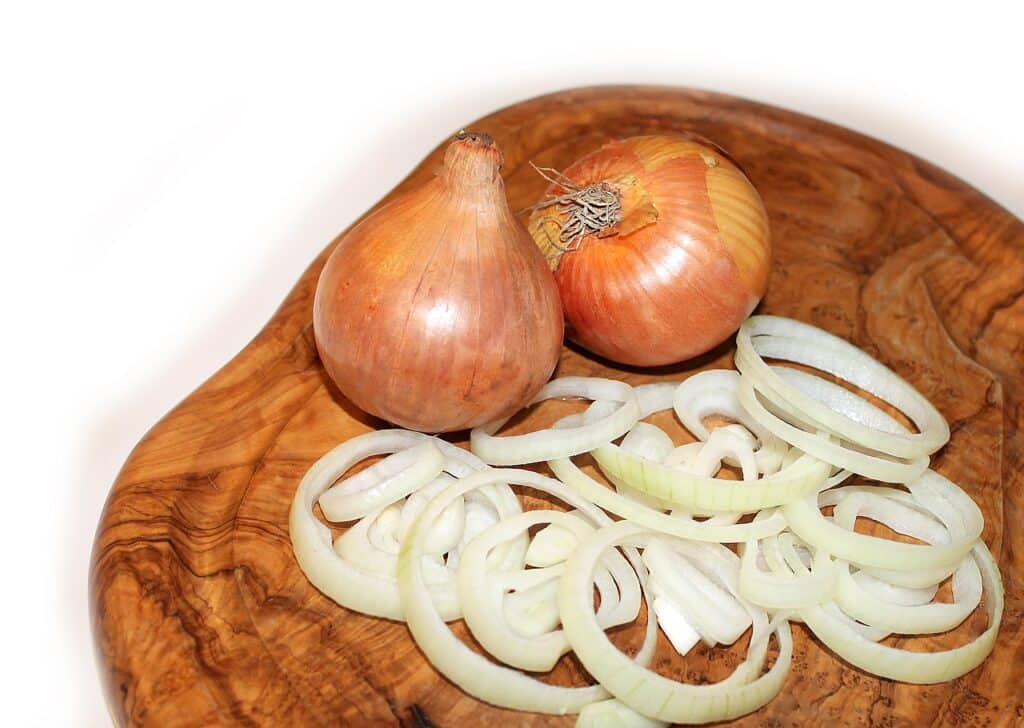Dr. Rosari Kingston PhD, M.Sc (Herbal medicine) is a medical herbalist practising in Dr. O’Reilly’s integrative clinical practice in Clonakilty, Co. Cork as well as Church Cross, Skibbereen. She considers the integration of herbal medicine with biomedicine to be the future of health care, if the great traditional medical systems, including the Irish healing tradition, are combined with modern research.

Onions are a common food in the kitchen, and it can be a cause of mild panic to find none left in the larder. There are plenty of reasons to have a plenty supply of onions available as they are a wonder food.
Onions are full of nutrition being high in vitamin C, vitamin B and potassium. As we move from the potato to rice and pasta, we may need to be more aware of the potassium properties of onions, as previously we got all we needed from potatoes. Another source of potassium are dandelion leaves, which make them a good addition to salads in the summer months. Vitamin C is useful for regulating the immune system, and for aiding iron absorption. It also helps in wound healing. B vitamins help nerve function and red blood cell production. They are also anti-inflammatory because of their quercetin content and this may help lower blood pressure, as well as being of general benefit to the heart, including the lowering of cholesterol.
Because onions contain a lot of antioxidants, they help prevent damage to cells and it is this damage that leads to diseases like cancer and diabetes as well as heart disease. Along with garlic, another member of the allium family, clinical studies have shown that they help prevent stomach cancer in particular. Onions also help to control blood sugar so are very beneficial to people suffering from diabetes type 2. Some research indicates that onions may also be useful in helping people reduce weight and this is also due to their quercetin content. After the menopause, onions have another advantage in that they help maintain bone health and improve bone density with one study showing that older women who ate onions regularly decreased their risk of hip fracture by more than 20 per cent compared to women who never ate them.
There is another reason to eat onions and that is, they fight bacteria, not only E. coli and Staph aureus but preliminary studies also show onions are effective against Helicobactor pylori, which is associated with stomach ulcers.
Onions are also a prebiotic, which means they are specialised plant fibres. They act like fertilisers that stimulate the growth of healthy bacteria in the gut. This in turn creates short chain fatty acids and short chain fatty acids help in reducing cholesterol production in the liver as well as acting as a source of energy for the cells lining the colon. Short chain fatty acids also decease diarrhoea and may help with inflammatory bowel conditions.
They add flavour to any savoury dish and are basic to casseroles and stews. They can be added to a stirfry and they add superb flavour to egg dishes, including, omelettes and quiches. They can be added raw to salads, even though scallions or red onions are probably a better choice here.
All in all, then, there is no reason not to include onions, in some shape or form, in our diet every day. When one thinks of their many beneficial properties, there is justification for felling that mild sense of panic when there is only one, or none, left in the larder.
Email: rkherbclinic@gmail.com
Tel. 028 38428
Rosari Kingston, PhD, Medical Herbalist.


